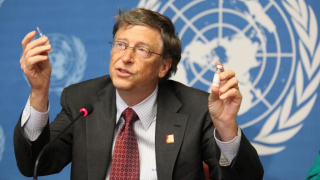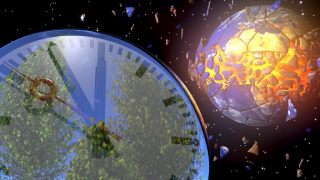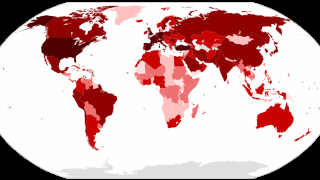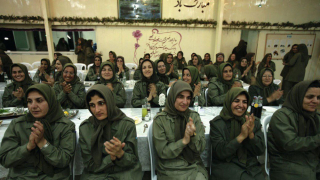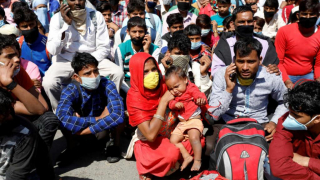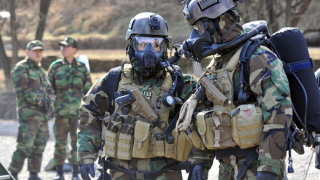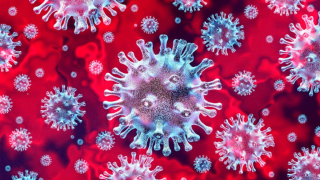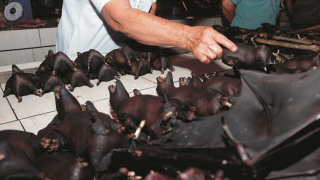Post-coronavirus world order (a realist analysis)
The situation with the coronavirus pandemic in Russia is gradually escalating and becoming truly critical - not only from the sanitary point of view, but also from the political and economic point of view. Panicked voices are heard more often, catastrophic forecasts are multiplying, and people's fear is growing as the consequences begin to be felt and the people gradually recognize the peculiarities of quarantine.
Scenarios of political catastrophe are increasingly being outlined due to the Russian government's inability to cope with the pandemic challenge. Some peculiarities of the behavior of the authorities - both supreme, governmental and regional - have quite rightly caused an outcry. It is clear that Putin mishandled the situation by making several significant mistakes in relation to the quarantine early on which could well become fatal. Prime Minister Mishustin, having included businesses close to him (such as bookmakers from Fonbett) in the system of state support, cut himself out of the game as a technical trifle, while Mayor Sobyanin, starting as a strong regional leader, made an irreparable mistake with epidemiologically unjustified checks of subway passes, which, combined with the notorious proposal on the eve of the pandemic to make significant cuts to the medical industry, has led to the erosion of all public trust. Other governors and regional authorities have acted with varying degrees of efficiency, but they increasingly feel abandoned by the federal centre and need to respond to the gradually beastly population themselves. No full emergency situation regime has been declared, although many processes are taking place outside the normal legal framework. The economic authorities (the Nabiullina cluster), who initially tried to comment on the situation somehow were reticent, as any statement from now on can only aggravate the situation, which has already become downright explosive. The overall picture is rapidly approaching the time of the collapse of the USSR, when Gorbachev and the CPSU Central Committee immediately lost control of the country. Putin in his bunker is almost like Gorbachev in Foros. After all, at the time, the authorities also made only one sound: "everything is under control, it's technical difficulties.” After a short time, however, the country was gone. If the response to the pandemic challenge is the same as it is now, a similar threat will become quite urgent for the Russian Federation.
In such a situation, however, one should, as far as possible, refrain from extreme emotions and panic and try to maintain clarity of thought. At the same time, it is important to think about positive scenarios without trying to hypnotize reality and boldly look into the eyes of an impending disaster.
Geopolitics of the coronavirus: who will collapse first?
The first thing to consider: this time, Russia is not alone in the crisis (as it was at the time of the collapse of the USSR), as all other countries are in a similar situation. Today, not only one of the poles of a bipolar world (as it was then) is collapsing, but rather, the whole system of global liberal capitalist world order is falling apart. And the West - the US and the EU in particular - will and are already profoundly affected. Yes, the Russian authorities have behaved no better than the West in the fight against the pandemic, but at the same time, not particularly worse. The fact is that they have reacted in the same way as the West - constantly hesitating between declaring an emergency situation and maintaining the status quo - in economy, politics, legal guidelines of the standard course of life of a democratic society. Only England, Sweden and Belarus (strangely enough) have followed and are following the strategy of ignoring the pandemic, while everyone else - including Trump - hesitates. They hesitate - just like Putin - and the Russian government as a whole. The state is moving between harsh restrictive measures (quarantine, isolation, etc.) to a partial return to normal, and each hesitation leads to new excesses: the rigidity provokes civil society's rage, which it feels threatened politically, economically, and psychologically, while the weakening of quarantine or the authorities' inept restrictive measures lead to new outbreaks of disease, new victims, new dissatisfactions. At the same time, the virus is mowing down the workers of strategic areas of the state - the army, the composition of the management of strategic types of defense and life-supporting industries. Especially critical is its indiscriminate spread among medical professionals, the military and government members, which paralyzes the life of the state and society. And not only in Russia (in our country, this process is just beginning), but everywhere, and - most importantly - in the West.
In such a situation, the crisis becomes universal and global. But since the laws of geopolitics have not been repealed and the confrontation of the world's macro-regions continues even in such extreme conditions (and moreover, have only been aggravated by the forced closure), the timing of the decay becomes key. From a geopolitical point of view, a fundamental question comes to the fore: who will collapse first? Since we are not talking about the collapse of one of two or several systems, but about the collapse of the entire liberal-capitalist order, which turned out to be untenable when faced with a global pandemic, no one has a chance to stand aside. Even China, with all its strength and autonomy, has built its success story on participation in globalization, albeit on Chinese terms and with its own benefits. The collapse of the global order will also strike at it irreparably. However, the entire architecture of the future post-coronavirus world depends on who will fall first.
To last until dawn...
If the situation is reaching a critical point earlier in the West: in the US a civil war has started, and the EU is finally close to collapse. It would be logical if liberal capitalism fell at its very center and not at its periphery. In this case, the end of the West and its plunge into chaos would lead to the collapse of liberal capitalist regimes and structures in the rest of the world - including Russia. But it is this sequence and this delay that is important here. If the West collapses first, the rest of the potential poles of the multipolar world will have a rather limited chance to quickly reshape into some new way, such as a socialist-type national military dictatorship. It will no longer be democracy, a market economy, civil rights, an open society or bourgeois parliamentarism. That would be it. But at least it will be possible to preserve the state. In other words, if the West collapses first, then bourgeois democracy and capitalism will collapse everywhere - in Russia too, with all the consequences for the current elite. But at the same time, we will have time for a rapid maneuver to address the national socialist ethatist military dictatorship, which in our history we find many examples. It is a blow and shock, but the state and society, as well as the central government, can be preserved. It is not at all obvious that it will be a beautiful society - most likely, it will not be. But it will be possible to escape from total hell and disintegration.
However, everything may turn out differently. If Russia collapses first, and even this cannot be ruled out due to the authorities' rather failed behavior since the beginning of the epidemic (we should speak separately about the previous strategic mistakes that made these failures possible), then the West will be able to slightly extend its existence beyond the epidemic. In the minds of Western elites and societies, the main obstacle to humanity's progress towards a "light globalist future" will fall apart, and even if this is a pure illusion, the effect of Russia's fall will be so significant that it may just work. Of course, the doomed capitalist system will not last long anyway, but the West can hold out for a while. After all, the situation in the West itself is aggravated by the possibility of a sharp weakening of its military and strategic potential, which is really dangerous when there is a strong and real enemy ready to jump. If there is no such opponent - including at the level of images (we are not talking about the real potential of modern Russia, it is a military secret in a sense, and China is not yet a serious military threat), then the West will be able to reorient attention entirely to internal problems and not to worry that the mistakes made will be used as dividends of the opposite - albeit conditionally - side.
Hence the conclusion: a lot of things in the development of the situation will depend not on who is better able to cope with the pandemic (now it is clear that no one is better able to cope with it), but on who will fall first and who will fall second. The speed of the West's collapse does not depend on Russia, but - relatively speaking - how long we will last on our own.
Only a military dictatorship will save the state...
The Russian state is in a critical position requiring decisive action. As soon as power - and power in a state of emergency is concentrated in the one who makes the decisions, retains a sober mind, and has the will to act drastically and is ready to answer for them (so the content of the term power clarifies life itself) - realizes that a military-socialist dictatorship is inevitable, it must be introduced immediately - and the sooner the better. The reaction of the "world community" can be ignored, in such conditions of war no one will start and no one will contact Russia directly with nuclear (still).
The state introduces troops into cities, assumes responsibility for material provision of citizens with the necessary minimum care for medical care and protection of order. Gangs, looters and protesters are destroyed in the name of saving the country. Industry is being rapidly deployed and agricultural products are being supplied. Business is cancelled (temporarily) as a phenomenon, and legal provisions are suspended. Wartime laws are being introduced. Any encroachments on the territorial integrity of the country by regional authorities are fundamentally repressed. Quarantine is carried out according to the same rules everywhere. Any hint of corruption or theft shall be punished immediately and ruthlessly on the basis of the decision of the field courts.
In the media sphere strict patriotic canons are established: minimum entertainment, maximum direct patriotic propaganda. In society, the ideology of power and traditions are implanted in total. Representatives of the military and law enforcement agencies not affected by corruption are nominated to the elite. The existing elites are thoroughly cleansed.
The most difficult period will be at the very beginning of the establishment of dictatorship, as it is critical to wait for the fall of the West. Russia cannot really speed up this process and somehow influence it, but the very fact that it will avoid falling into chaos, even if at the cost of abandoning liberal democracy and capitalism, will make it a flagship of the global alternative. In this case, the possession of nuclear weapons and the historical tradition of strong sovereignty will make Russia also respect the new poles - China, which will have nothing against the dictatorship (as it already exists in China itself), the same will be true of Islamic countries and then everyone else. Even in the West there will clearly be a desire to follow such a path, as in a critical situation this is clearly the only way out. The West will face a dilemma: either to do what Russia did, i.e. introduce a national military-socialist dictatorship, or to disintegrate and plunge into the abyss of chaos and civil war. Here the West will remember its history and, having made certain corrections, will return to its not so unusual path in politics.
Union of Russian Rural Armed Communities
So, how do we save society, the people? The strategy of maximum independence from the usual pre-coronavirus mechanisms of life support is important here. The sooner society realizes that the return to the old life is business, idleness, hipsters, decay, entertainment, etc. - won't be possible, the better. The era of deficiency, deficit and the problem of sustaining even the necessary minimum has already begun, and it will be here for a long time. The conclusion must be drawn from this: only self-reliance will save the population.
Self-reliance has quite clear contours -
- abandoning cities that become toxic and untenable;
- moving to land whose cultivation will provide the minimum necessary for survival;
- the creation of rural communities that provide mutual support, minimum production and minimum self-defence;
- a return to the traditions and customs of the people at home (village parishes, home prayers, traditional families).
Of this community environment, the most passive personnel will be co-opted with the new military and socialist elite.
Those remaining in the cities will have to be involved in industrial production, but will also be included in the process of returning to the traditional norms of community life. Instead of an individualized proletariat, workers' artels should be created, and the beginning of the shift in the workshops should be preceded by collective prayers and chants. It is necessary to restore the norms of Orthodox morality on the basis of the total spread of ideology and repressive methods.
The people should be divided into three classes:
- The priesthood,
- The army,
- The workers.
The former are responsible for the spirit, the second for the state, and the latter for the production of goods.
Military socialism
The economy should be organized in a whole new way. Instead of capitalism and its instruments, the norms of atypical (non-digmatic) socialism should be introduced. The economy should be based on agrarian production. If a country has enough food to meet the needs of the population, then the main task of the economy is fulfilled - people do not die of hunger, and therefore they stay alive.
Industrial production should be oriented to provide agrarian labour.
Separate consideration should be given to the military industry, where special scientific, technical and industrial clusters with a strictly paramilitary structure should be retained for defence purposes. In order to confront a possible enemy it is necessary to develop certain segments of industry - metallurgy, machine-building, high technologies, from which the civilian population should be protected as far as possible. Therefore, it makes sense to divide the entire economy into civil and military sectors, which should intersect each other in a limited - preferably minimal - number of cases.
The financial sphere should also be restructured: special funds should be allocated to the military-industrial sphere, "military money", which should not get into society as such. "Peace money" should serve only to simplify the process of commodity exchange. A fully sovereign state does not depend on foreign currency at all, and the world reserve currency will no longer be available due to the collapse of world capitalism and the fall of the United States. Therefore, both "war money" and "peace money" should be issued by the state in as much as the need arises.
In general, the focus should shift from economy to culture and spirituality, making material aspects secondary.
The basic principle of this socialism is that justice is more important than material prosperity. If everyone lives more or less equally and social inequality is minimal, then society is ready to accept more limited opportunities.
Then comes the dictatorship.
They might object: it's not bad enough to propose such horrors. I agree: it is not yet so bad. But if we extend the trends that we are already seeing for the foreseeable future and make a quite realistic assumption that the fight against the pandemic (and are there any serious rational reasons to think otherwise?), then everything will cease to be so extravagant and will acquire rather realistic features. When the Soviet Union fell, no one wanted to look into the near future through the fatal trait of 1991. But then there was a self-evident answer: we accept the system of the Second Pole, Western capitalism, and get involved in the process of globalization and the end of history. Today, however, there is no such a self-evident answer. And it is impossible to look for it in the present. Even the Chinese experience, with its closed borders, is unthinkable to repeat, not to mention its solid ideological component and the special features of China's highly disciplined social culture. Therefore, it is necessary to address the past and the future by suggesting something new and not yet existing. This is where the answer is rooted: after a pandemic, the world is in danger of either chaos (if the hesitation continues and no choice is made in favor of a more certain model) or a world of national dictatorship.
Every option involves some kind of radical change, requiring us to have the courage to look a little further than our own nose, so clearly pinched during the quarantine.


